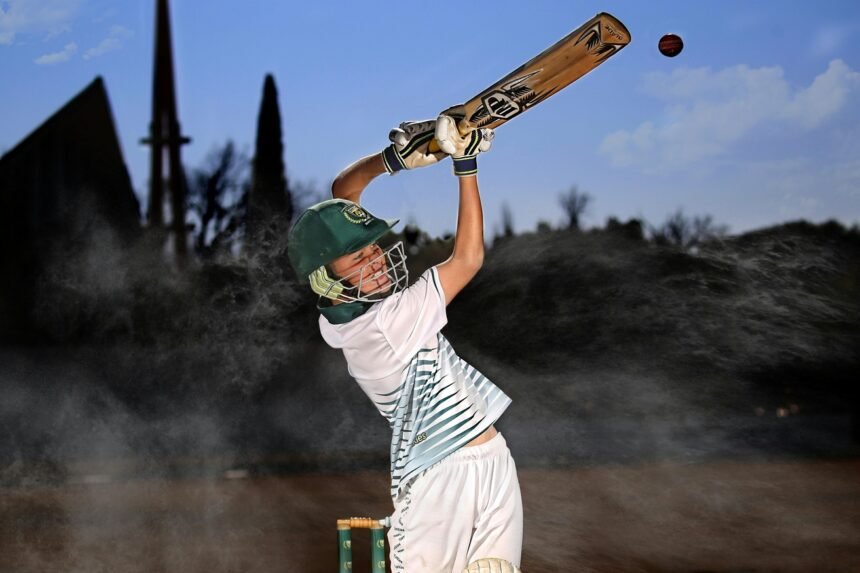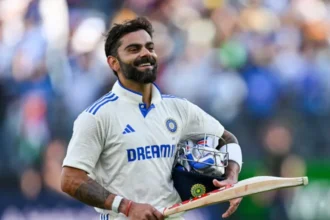The air in Mumbai crackled not just with the humid promise of monsoon, but with an electric anticipation. The ‘Subcontinental Super League’ (SSL) was just weeks away, and the fixture everyone circled in red was the clash between the Mumbai Mavericks and the Lahore Lions. It wasn’t just a cricket match; it was a cultural spectacle, a proxy battle of national pride, and for millions, a fleeting moment of shared passion that transcended the barbed wire of political divides. This was the true spirit of the game, often threatened by underlying border tensions.
Rohan Sharma, the Mavericks’ star all-rounder, felt the buzz deep in his bones. His Instagram was a flurry of fan edits, his phone constantly pinging with messages from teammates and agents. This year, he was in career-best form, his bat a willow wand, his off-breaks a deceptive dance. He dreamt of lifting the SSL trophy, of the roar of the Wankhede Stadium echoing his name. More than that, he dreamt of facing his friendly rival, the Lions’ captain, Amir Khan, a man whose cover drives were as elegant as Rohan’s own straight drives. They had shared nets in overseas leagues, exchanged banter over late-night coffees, and harbored a mutual respect that ran deeper than any national anthem.
Across the border in Lahore, Amir felt a similar, albeit more anxious, tremor. The Lions were a formidable side, brimming with young talent and seasoned veterans. But a shadow had begun to creep over the league. Whispers of ‘border skirmishes’ and ‘diplomatic standoffs’ had escalated from hushed news reports to front-page headlines. Social media, usually a platform for playful rivalry, was now a battleground of vitriol. Fan groups, once united by their love for the game, splintered into factions, each mirroring the escalating rhetoric of their respective governments. This was the unfortunate reality of rising border tensions.
Then came the first tremor. A prominent sports analyst, usually a voice of reason, suggested a ‘reconsideration’ of cross-border player participation. Rohan dismissed it as sensationalism. Amir, however, felt a cold knot tighten in his stomach. He’d seen this before. The last time, it had been a minor incident, quickly resolved. But this felt different. The political temperature was rising, and the usual channels of communication between the sporting boards seemed to be freezing over, directly impacting the sport amidst growing border tensions.
The official announcement landed like a thunderclap. Citing “unforeseen geopolitical circumstances” and “security concerns,” the league organizers declared an indefinite suspension of all matches involving teams from opposing nations. The Mumbai Mavericks vs. Lahore Lions derby, the crown jewel of the SSL, was off. Not postponed, not relocated, but off.
Rohan stared at his phone, the words blurring. His dream, the collective dream of millions, had just been shattered by a few lines of corporate jargon. The Wankhede would remain silent. The roar would be replaced by a hollow ache. He thought of Amir, of the countless hours they had both dedicated, the sacrifices, the sheer joy of competing at the highest level. All for naught.
The impact rippled far beyond the players. Small businesses that thrived on match-day crowds – the chai wallahs, the souvenir vendors, the taxi drivers – saw their peak season evaporate. Hotels that had booked out rooms for visiting fans faced mass cancellations. Television networks scrambled to fill prime-time slots, their advertising revenues plummeting. The league, once a symbol of unity through sport, became a stark reminder of division, a testament to the complex interplay of politics and sport, especially when border tensions are high.
For Rohan, the immediate sting was the loss of income, the uncertainty of future opportunities. But deeper was the sense of betrayal. He felt like a pawn in a game he didn’t understand, a casualty of forces beyond his control. He saw the angry comments online, fans from both sides blaming each other, each convinced of their own nation’s righteousness. The shared love for cricket, once a bridge, now seemed to highlight the chasm.
Amir, too, felt the weight of it. His younger teammates, many of whom relied on the SSL contracts to support their families, were devastated. The camaraderie within the team, usually unbreakable, was strained by the external pressures. He wondered if he would ever face Rohan on a cricket field again, not just in a friendly exhibition, but in a high-stakes, competitive match where the passion of millions hung on every ball.
READ ALSO: The Ultimate Test of Resilience: Lord’s Awaits the World Test Championship Final
The SSL eventually resumed, but it was a diminished affair. The vibrancy, the unique cross-cultural energy, was gone. Matches felt less like celebrations and more like obligations. The unplayed derby became a poignant symbol, a ghost fixture haunting the league. It served as a stark reminder that when political tensions boil over, even the most unifying forces, like the shared love of a game, can be silenced, leaving behind not just empty stadiums, but a profound sense of loss for all involved. The boundary lines on the map had, once again, bled onto the playing field, leaving a sport, and its devotees, bruised and heartbroken by the ongoing disruptions caused by border tensions.



